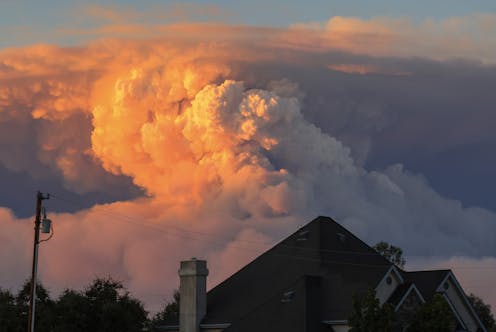Wildfires can create their own weather, further spreading the flames − an atmospheric scientist explains how
- Written by Kyle Hilburn, Research Scientist in Atmospheric Science, Colorado State University
 A huge pyrocumulus cloud rises over the Park Fire near Chico, Calif., on July 26, 2024. David McNew/Getty Images
A huge pyrocumulus cloud rises over the Park Fire near Chico, Calif., on July 26, 2024. David McNew/Getty ImagesWildfire blowups, fire whirls, towering thunderstorms: When fires get large and hot enough, they can actually create their own weather.
In these extreme fire situations, firefighters’ ordinary methods to directly control the fire...

